Filter by
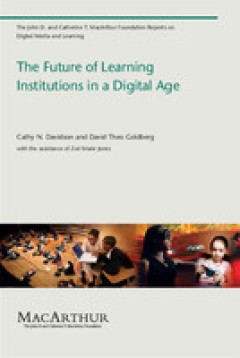
The future of learning institutions in a digital age
This John D. and Catherine T. MacArthur Foundation Report is a redaction of the argument in our book-in-progress, currently titled The Future of Thinking: Learning Institutions in a Digital Age. That book, to be published in 2010, is merely the concrete (paper and online) manifestation and culmination of a long, complex process that brought together dozens of collaborators, face to face and vir…
- Edition
- -
- ISBN/ISSN
- 9780262513593
- Collation
- xi, 67 p.; ill
- Series Title
- -
- Call Number
- 371.3344678 THE t
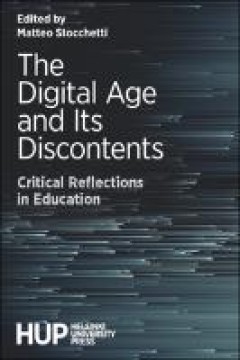
The digital age and its discontents : critical reflections in educatione
Three decades into the ‘digital age’, the promises of emancipation of the digital ‘revolution’ in education are still unfulfilled. Furthermore, digitalization seems to generate new and unexpected challenges – for example, the unwarranted influence of digital monopolies, the radicalization of political communication, and the facilitation of mass surveillance, to name a few. This volume…
- Edition
- -
- ISBN/ISSN
- 9789523690127
- Collation
- xii, 274 p.; ill.
- Series Title
- -
- Call Number
- 371.33 THE t
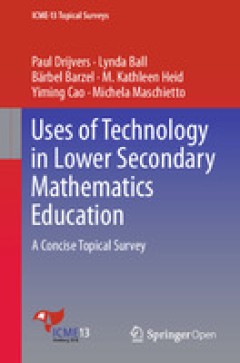
Uses of technology in lower secondary mathematics education : a concise topic…
Digital technology1is omnipresent in society. Revolutionary technological develop-ments change the character of professional environments, and therefore put new demands on workers (Hoyles, Noss, Kent, & Bakker,2010). Consequently, there arenewdemandsoneducationalsystemsinordertopreparestudentsforfutureprofessions.Importantly, technology also offers opportunities for teaching and learning (see f…
- Edition
- -
- ISBN/ISSN
- 9783319336664
- Collation
- VII, 34 p.
- Series Title
- ICME-13 Topical Surveys
- Call Number
- 510.712 USE u
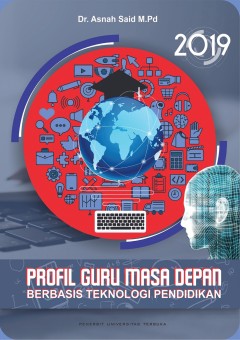
Profil guru masa depan berbasis teknologi pendidikan
Kemajuan IPTEKterutama bidang teknologi informasi dan komunikasi (TIK) mengalami kecepatan dan percepatan yang luar biasa, dan memberikan tekanan pada perilaku manusia dalam memenuhi kebutuhan dan tuntutan kehidupan bermasyarakat. Seiring perkembangan era teknologi informasi dan komunikasi (TIK), maka perkembangan yang diharapkan terjadi terkait profesionalitas guru dimasa mendatang hendaknya m…
- Edition
- -
- ISBN/ISSN
- 9786023927739
- Collation
- 439p. : ill.
- Series Title
- -
- Call Number
- 371.1 SAI p
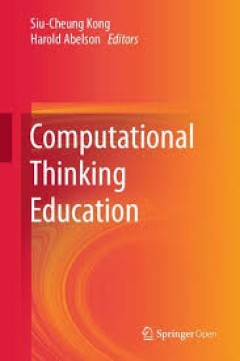
Computational thinking education
This book offers a comprehensive guide, covering every important aspect of computational thinking education. It provides an in-depth discussion of computational thinking, including the notion of perceiving computational thinking practices as ways of mapping models from the abstraction of data and process structures to natural phenomena. Further, it explores how computational thinking education …
- Edition
- -
- ISBN/ISSN
- 9789811365287
- Collation
- ix, 382p. : ill.
- Series Title
- -
- Call Number
- 370.1523 KON c
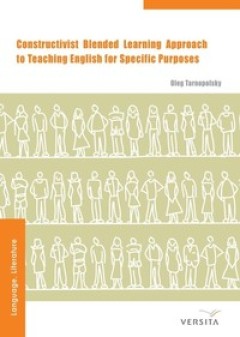
Constructivist blended learning approach : to teaching English for specific p…
This monograph analyzes an innovative approach to teaching English for Specific Purposes (ESP) in tertiary education. This "constructivist blended learning approach" is based on students "constructing" for themselves their own knowledge and professional communication skills in English by making extensive use of Internet sites in English, combining traditional in-class learning with in- and out-…
- Edition
- -
- ISBN/ISSN
- 9788376560014
- Collation
- VII, 256 p.
- Series Title
- -
- Call Number
- 410 TAR c
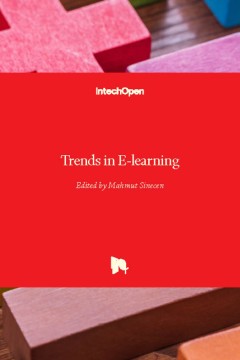
Trends in e-learning
This book presents a collection of different researches and results on ""e-learning"". The chapters cover the deficiencies, requirements, advantages and disadvantages of e-learning and distance learning. So, the authors reported their research and analysis results on ""e-learning"" according to their areas of expertise.
- Edition
- -
- ISBN/ISSN
- 9781789235425
- Collation
- 162 p.; 22 cm.
- Series Title
- -
- Call Number
- 373.2 TRE t
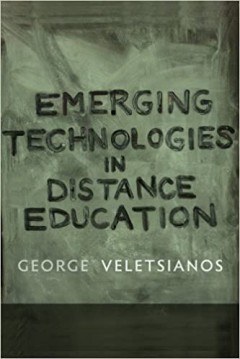
Emerging technologies in distance education
A one-stop knowledge resource, Emerging Technologies in Distance Education showcases the international work of research scholars and innovative distance education practitioners who use emerging interactive technologies for teaching and learning at a distance. This widely anticipated book harnesses the dispersed knowledge of international experts who highlight pedagogical, organizational, cultur…
- Edition
- -
- ISBN/ISSN
- 9781897425770
- Collation
- xiv, 334p.; ill.
- Series Title
- -
- Call Number
- 371.358 EME e
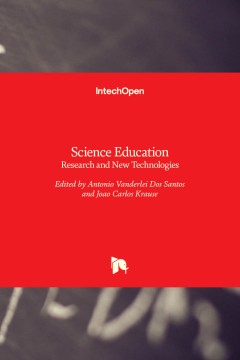
Science education : research and new technologies
The book presents a discussion on education of sciences, through a technological view shown in the works of a variety of authors from different countries. It's a differentiated conception of scientific education bringing renowned authors who discuss from teacher formation to the inclusion of new technologies into education. We are proud to say that the themes discussed in the book are up to dat…
- Edition
- -
- ISBN/ISSN
- 9789535135395
- Collation
- 184 p.; 22 cm.
- Series Title
- -
- Call Number
- 373.2 SCI s
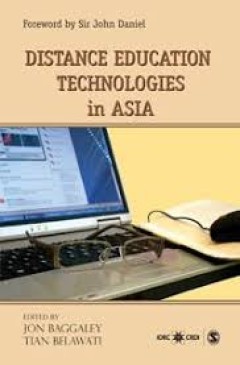
Distance education technologies in Asia
For observers elsewhere in the world, the most striking feature of distance education (DE) in Asia is the mega-universities and mega-schools that have added many millions to the global tally of distance learners in recent decades. These are institutions such as China’s radio and television universities (now called the Open University of China) and India’s National Institute for Open Schooli…
- Edition
- -
- ISBN/ISSN
- 9781552505021
- Collation
- xxxvi, 270 p.
- Series Title
- -
- Call Number
- -
 Computer Science, Information & General Works
Computer Science, Information & General Works  Philosophy & Psychology
Philosophy & Psychology  Religion
Religion  Social Sciences
Social Sciences  Language
Language  Pure Science
Pure Science  Applied Sciences
Applied Sciences  Art & Recreation
Art & Recreation  Literature
Literature  History & Geography
History & Geography